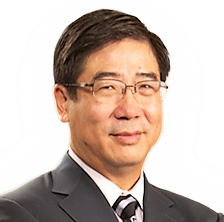What Does Disc Degeneration Actually Mean?
WEST ORANGE, N.J. (PRWEB) December 22, 2021
The word degeneration, meaning decline or deterioration, becomes particularly worrisome when it’s paired with the discs of your spine. But there’s much you can do to combat disc degeneration’s variety of symptoms if this common back condition happens to strike, according to Kaixuan Liu, MD, PhD, endoscopic spine surgeon and founder of Atlantic Spine Center.
Linked most strongly with aging itself – a risk factor we cannot change – disc degeneration is typically a cascade of changes to spinal discs, which are located between the bony vertebrae and help us bend and flex while cushioning much of the pressure from everyday movements. Disc degeneration usually happens slowly over time and can happen in any area of the spine, though the lower back or neck are often prime locations, Dr. Liu says.
“As the discs lose fluid, disc degeneration can lead to tears in their outer layers and the growth of nerve fibers within damaged discs,” explains Dr. Liu. “This domino effect, what some call the ‘Degenerative Cascade,’ can result in several other spinal problems, including bone spurs, herniated discs and spinal stenosis. Proper diagnosis is essential to catch the problem early.”
Symptoms to watch
What symptoms might clue you in to disc degeneration? Dr. Liu advises watching for these signs:
- Pain in the lower back, buttocks, thighs or neck
- Pain that worsens when sitting, bending, lifting or twisting
- Pain that gets better when walking, changing positions or lying down
- Periods of severe back pain that improve after days, weeks or months
- Numbness, weakness or tingling in the legs
Certain unchangeable risk factors make it more likely you’ll develop disc degeneration, including getting older and having a family history of the problem. But you can avoid or carefully control other predisposing behaviors such as smoking, obesity, heavy lifting, athletic participation, or – to a certain point – back injury.
“You might not be sure you’re experiencing disc degeneration, but you’ll probably be aware you do have a problem,” Dr. Liu says. “Your doctor can zero in on it by doing a physical exam, performing imaging tests of the spinal discs and surrounding areas, or evaluating your nerve function with a variety of tests.”
Ways to tackle disc degeneration
If you can, you’ll want to prevent disc degeneration from ever starting. Various lifestyle tactics can do wonders to discourage the condition, Dr. Liu says. These include regular exercise, quitting smoking, eating a healthy diet, drinking plenty of water, and changing back positions and movements that might prove troublesome.
Beyond that, an array of treatment approaches can help if disc degeneration is the culprit of your symptoms.
“Treatments aim at weakened back muscles, inflammation surrounding painful nerves, and structural problems in the spine that underlie disc degeneration,” Dr. Liu explains. They include:
- NSAIDs (nonsteroidal anti-inflammatory drugs), either over-the-counter or prescription strength. These medications control pain and reduce inflammation.
- Physical therapy, which your doctor would prescribe. It may include exercise, posture training, ice or heat therapy, or electrical stimulation.
- Steroid injections in your doctor’s office. These would target areas surrounding painful nerves near the spinal cord and can calm inflammation.
- Surgery to remove degenerated discs and/or fuse together two vertebrae.
“Surgery, of course, is a last resort if more conservative measures don’t improve your pain and other symptoms over time,” he says. “Do you best to prevent disc degeneration, but other strategies can help you regain your quality of life if it occurs.”
Atlantic Spine Center is a nationally recognized leader for endoscopic spine surgery with several locations in NJ and NYC. http://www.atlanticspinecenter.com, http://www.atlanticspinecenter.nyc
Kaixuan Liu, MD, PhD, is a board-certified physician who is fellowship-trained in minimally invasive spine surgery. He is the founder of Atlantic Spine Center.

